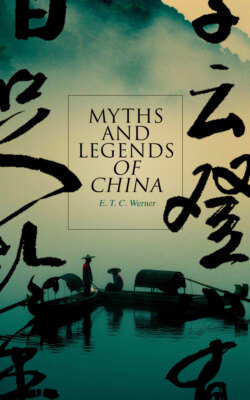Читать книгу Myths and Legends of China - E. T. C. Werner - Страница 31
На сайте Литреса книга снята с продажи.
Domestic Life
ОглавлениеIn domestic or private life, observances at birth, betrothal, and marriage were elaborate, and retained superstitious elements. Early rising was general. Shaving of the head and beard, as well as cleaning of the ears and massage, was done by barbers. There were public baths in all cities and towns. Shops were closed at nightfall, and, the streets being until recent times ill-lit or unlit, passengers or their attendants carried lanterns. Most houses, except the poorest, had private watchmen. Generally two meals a day were taken. Dinners to friends were served at inns or restaurants, accompanied or followed by musical or theatrical performances. The place of honour is stated in Western books on China to be on the left, but the fact is that the place of honour is the one which shows the utmost solicitude for the safety of the guest. It is therefore not necessarily one fixed place, but would usually be the one facing the door, so that the guest might be in a position to see an enemy enter, and take measures accordingly.
Lap-dogs and cage-birds were kept as pets; 'wonks,' the huang kou, or 'yellow dog,' were guards of houses and street scavengers. Aquaria with goldfish were often to be seen in the houses of the upper and middle classes, the gardens and courtyards of which usually contained rockeries and artistic shrubs and flowers.
Whiskers were never worn, and moustaches and beards only after forty, before which age the hair grew, if at all, very scantily. Full, thick beards, as in the West, were practically never seen, even on the aged. Snuff-bottles, tobacco-pipes, and fans were carried by both sexes. Nails were worn long by members of the literary and leisured classes. Non-Manchu women and girls had cramped feet, and both Manchu and Chinese women used cosmetics freely.
